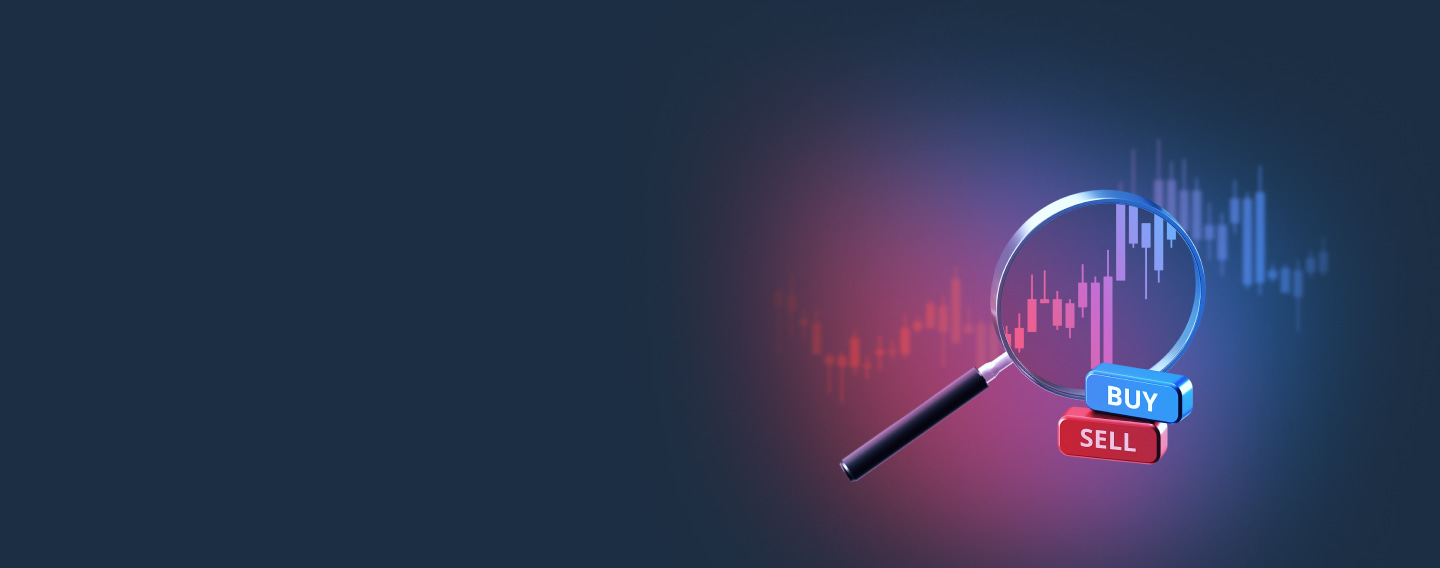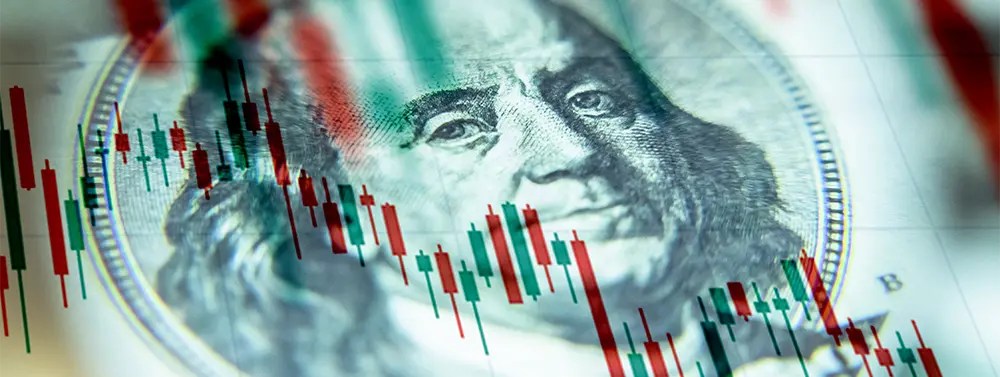


The Mechanics of the Forex Market: How Trades Happen
Forex Fundamentals
Explore the Forex market, a crucial part of global finance, where currencies fluctuate based on world events, economic data, and market trends. It's a place where trading involves not just major currencies but engages a network of traders with liquidity, leverage, and volatility. Each currency pair tells its story, influenced by technical analysis and global economic shifts. Welcome to the Forex market – your path to understanding the economic forces behind currency values.
Basics of Forex Market Trading
The Forex market is a thrilling arena where currency pairs play the lead, trading hands in a spectacle of economic strategy and insight. At its core, the Forex market involves buying one currency while selling another, a dance of exchange rates influenced by global events, monetary policies, and market dynamics. Imagine stepping into a realm where the USD/EUR, GBP/JPY, and other major pairs navigate through fluctuations guided by the beats of leverage, liquidity, and volatility.
Forex isn't just about exchanging money; it's about understanding the movement of global economies, from the bustling markets of London to the vibrant trading floors of Tokyo. It's a world where traders harness the power of spot transactions, forex swaps, and outright forwards to predict and profit from currency movements. With every trade, they leverage economic calendars, interest rate differentials, and technical indicators, crafting strategies that echo through the decentralized global finance network.
In the Forex market, every beginner holds the potential to become a professional, using leverage wisely, understanding the risks, and learning the rhythm of currency pairs. Trading isn't just about buying and selling; it's like combining art and science. Every decision you make is like adding brushstrokes to the big picture of the financial markets. Welcome to the world of the Forex market—a place where ambition meets strategy and the market's heartbeat offers endless opportunities.
How the Forex Market Works
The Forex market works 24/7, from the bustling cities of London to the energetic trading floors of Tokyo. Unlike the stock market, this decentralized network thrives on the pulse of international banks, financial institutions, and individual traders, all intertwined in a dance of currency exchange. Picture a web of vast transactions circling the globe, allowing currencies like the USD, EUR, and JPY to flow freely, their values constantly negotiated in real time.
Leverage and liquidity are the keys to unlocking potential profits, with traders leveraging small margins for significant gains. This is where all the action happens—the interbank market. Banks and financial firms make big trades here, which directly impact currency values. These entities are like the backbone of the Forex market, making sure currencies flow smoothly based on interest rates, economic indicators, and world events.
Getting into the Forex market means engaging with a market that reflects the world's economic health, where each trade bets on the future direction of economies. It's a world that requires knowledge, strategy, and agility to adapt to the market's fluctuations.
Trading Hours and Sessions
The Forex market never sleeps, operating 24/7 as the sun rises in Tokyo, sets in New York, and London traders start their day. Forex market is divided into the Tokyo, London, and New York sessions, each with its characteristics. Volatility peaks when sessions overlap, particularly during the London-New York window, leading to significant movement in major currency pairs.
Traders take advantage of the market's 24-hour nature, capitalizing on economic releases, geopolitical events, and shifts in market sentiment to catch profitable opportunities. Welcome to the fast-paced Forex market world, where time truly is money.
Factors Influencing Forex Markets
In the exciting Forex market world, understanding what drives the market is like navigating a vast ocean. Economic indicators, such as GDP growth, inflation rates, and employment data, serve as the wind in the sails of currency pairs, pushing them toward new values. Political events and stability, or the lack thereof, can act like unpredictable currents, abruptly changing the market's direction.
Then, there's market sentiment—traders' collective feelings fueled by news, rumors, and forecasts, often resulting in waves of bullish or bearish trends. Imagine a trader analyzing the impact of the Federal Reserve's interest rate decision or deciphering the subtleties of a presidential election's outcome on the USD. It's a dynamic environment where the smart use of leverage and a good understanding of liquidity can turn the tides in one's favor.
This complex landscape of the Forex market is where economic calendars, technical indicators, and geopolitical developments intersect, guiding traders through the global economy's ups and downs. Welcome to the Forex market, where every movement tells a story of global interconnection.
Forex Market Trading Strategies
Diving into Forex market trading without a strategy is like setting sail without a compass. Successful traders navigate the currency seas with well-crafted strategies, whether they prefer the rapid currents of day trading or the long voyages of position trading. At the heart of these strategies lies a blend of fundamental analysis—decoding economic indicators and news to predict market movements—and technical analysis, where charts and indicators become the map to treasure troves of trading opportunities.
Consider the scalper, darting in and out of trades, leveraging volatility for quick gains, or the swing trader, who rides the waves of market momentum, seeking profit in the shift of tides. Each strategy requires unique skills, from understanding leverage to interpreting liquidity signals.
Risk management, however, is the universal compass that guides all. It's about knowing when to hold your course and when to adjust your sails, using stop-loss orders and position sizing to weather unexpected storms. In the vast Forex ocean, your strategy is your north star, guiding you to success through the shifting winds and tides of the global economy.
Forex Market Trading Platforms and Tools
In the fast-paced world of the Forex Market, platforms and tools are essential for traders. They serve as a cockpit, providing real-time data, analysis tools, and the ability to make trades quickly. These platforms also offer technical analysis tools, indicators like RSI and MACD, and economic calendars to help traders navigate the market. The right platform is like a reliable copilot, offering features such as one-click trading, automated trading systems, and customizable interfaces.
Whether you're a day trader or a long-term investor, these platforms provide the radar for spotting opportunities in the vast Forex market. With the right tools, traders can boost their strategies and embark on their trading journey.
Opening a Forex Account
Opening a Forex account is straightforward, especially with a broker like HYCM. To start, you'll need to visit their website and look for the option to open an account. This typically involves filling out a registration form with basic information such as your name, email address, and financial details.
The next step involves verifying your identity and residence, a standard practice across Forex brokers to comply with financial regulations. This usually means submitting copies of a government-issued ID and a utility bill or bank statement as proof of address.
Your account will be activated once your documents are approved, and you can start trading. This process enables you to access the Forex market, offering opportunities to trade currencies worldwide. Remember, it's important to familiarize yourself with the platform and trading tools your broker offers and understand the risks involved in Forex trading.
The Role of Forex Brokers
Forex brokers like HYCM play a crucial role in currency trading. They act as intermediaries, providing traders access to the Forex markets. Opening an account with a broker like HYCM is your first step toward trading currencies. These brokers offer platforms where you can monitor the market, analyze trends using various tools, and execute trades. They ensure your trades are carried out efficiently and offer leverage options to amplify your trading capacity. Understanding the services and support your Forex broker provides is essential for navigating the markets effectively and making informed trading decisions.
FAQs on the Forex Market
What is Forex trading, and who participates in it?
Forex or foreign exchange trading involves buying and selling currencies on a decentralized global market. It's one of the largest financial markets in the world. Participants include individual retail traders, large financial institutions, governments, and central banks. Individuals join the market to speculate on currency fluctuations, while institutions may participate to hedge or facilitate international trade transactions.
How does currency trading work?
Currency trading works by simultaneously buying one currency while selling another. Currencies are traded in pairs, such as EUR/USD. Traders speculate on the movement of exchange rates, buying a currency pair if they believe the base currency will strengthen against the quote currency or selling it if they believe the opposite will occur.
Can Forex trading be profitable?
Yes, Forex trading can be profitable but comes with high risk. Profitability depends on a trader's ability to make informed decisions based on market analysis, economic indicators, and global events. Successful traders often use a combination of technical analysis, fundamental analysis, and risk management strategies to maximize their chances of profitability.
What are the risks involved in Forex trading?
Forex trading involves significant risks due to the market's high volatility and leverage. Common risks include market risk, where currency values can fluctuate unexpectedly due to changes in economic indicators, geopolitical stability, and other factors. Leverage can amplify profits and losses, potentially leading to rapid financial loss if not managed properly. Risk management strategies, such as setting stop-loss orders and only trading with money you can afford to lose, are crucial for mitigating these risks.



